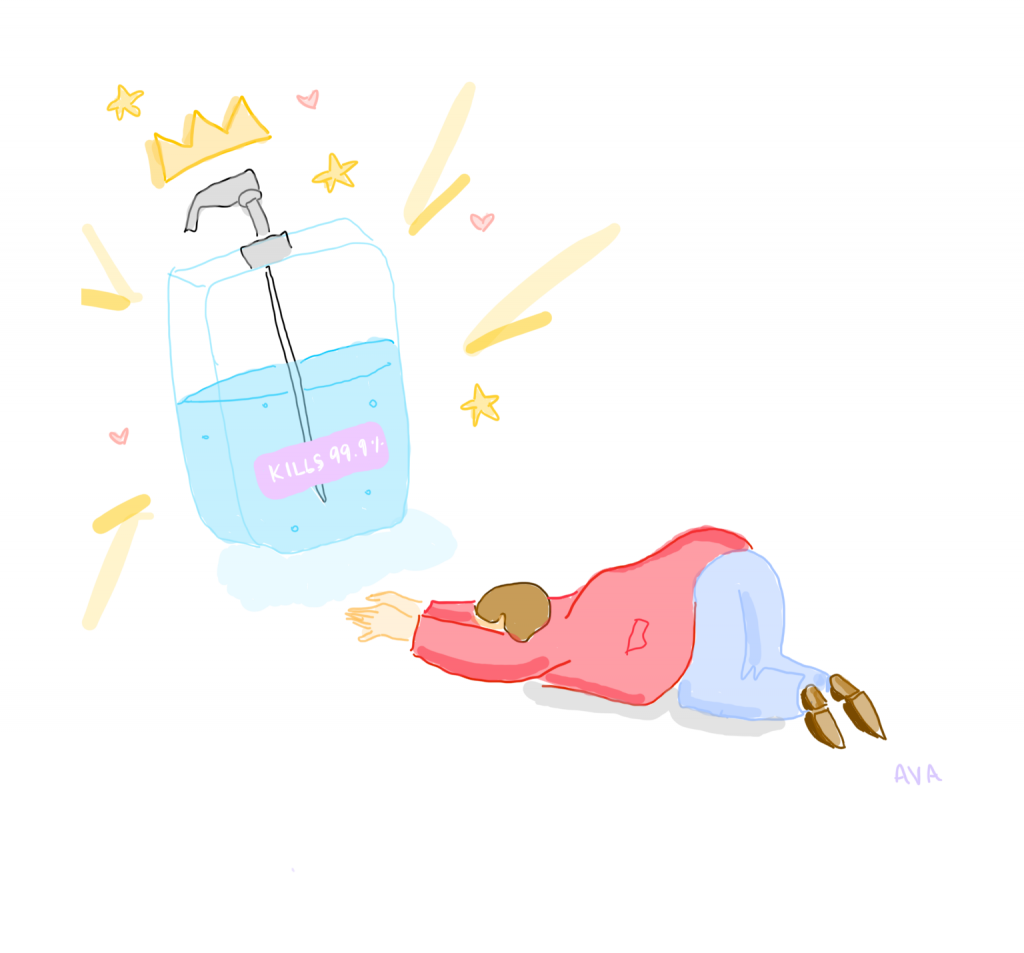As of mid-March, the village of Ridgewood is in a state of emergency. There are currently five patients sick with COVID-19 at The Valley Hospital, two of which are residents of Ridgewood. Circumstances are bound to change over the next few weeks, but there are a few preventative measures from trusted health organizations that can help us all stay as healthy as possible.
First of all, hands carry a shocking amount of germs, and the virus can be transmitted through them. So — wash your hands! Washing your hands is especially important after you blow your nose, cough or sneeze, visit someone sick, use the toilet, return home from a public place, eat or prepare food, or come in contact with a pet. And although it can be tempting at times, do your best to not touch your eyes, mouth or nose!
On that note, one overlooked aspect of hand-washing is the drying process. Shaking your hands and running them off with water is not enough, and it is important to thoroughly dry them as wet hands spread bacteria more easily. “The friction of a hand towel, whether it’s paper or cloth … removes germs if you haven’t removed them with the soap and water,” says Mary-Louise McLaws, an infection control expert from the University of New South Wales.
Along with personal hygiene, the enforcement of social distancing is an effective way to slow down the spread of disease. By doing one’s part in staying away from social gatherings and public spaces, we can reduce the chances of catching the disease and spreading it to family members and others. With schools being cancelled, it can be tempting for students to go out and congregate in public places with their friends in their free time; however, it’s imperative we limit these kinds of interactions because it can do more harm than good. Same goes with traveling; though prices of plane tickets are at an all-time low, it’s not a reason to vacation in the Bahamas! The virus is virtually everywhere, and we must not take such risks that can potentially harm us.
Knowing the signs and symptoms of COVID-19 can be crucial to one’s health. It’s probable that you’ve heard someone sneeze or blow their nose and then make a casual joke about possibly having “corona.” However, having a stuffy nose and sneezing are not definitive symptoms of the virus! Although it is great to be aware of the possibility, it displays a lack of proper education about the disease. The most prominent symptoms are having shortness of breath, coughing, having a fever, or feeling fatigued. But if you are feeling under-the-weather in any way, always do some research, talk to a doctor about the issue, and follow their advice and guidelines.
As mass hysteria plagues the media and society, the best thing we can do as citizens is to take extra precautions in our actions in order to stay safe and healthy. By following the guidelines above and staying informed through our own research, we can all decrease our chances of getting sick and hopefully put an end to this pandemic.
Tess Cundiff and Emily Kim
digital content manager and staff writer
Graphic: Ava Haberman

